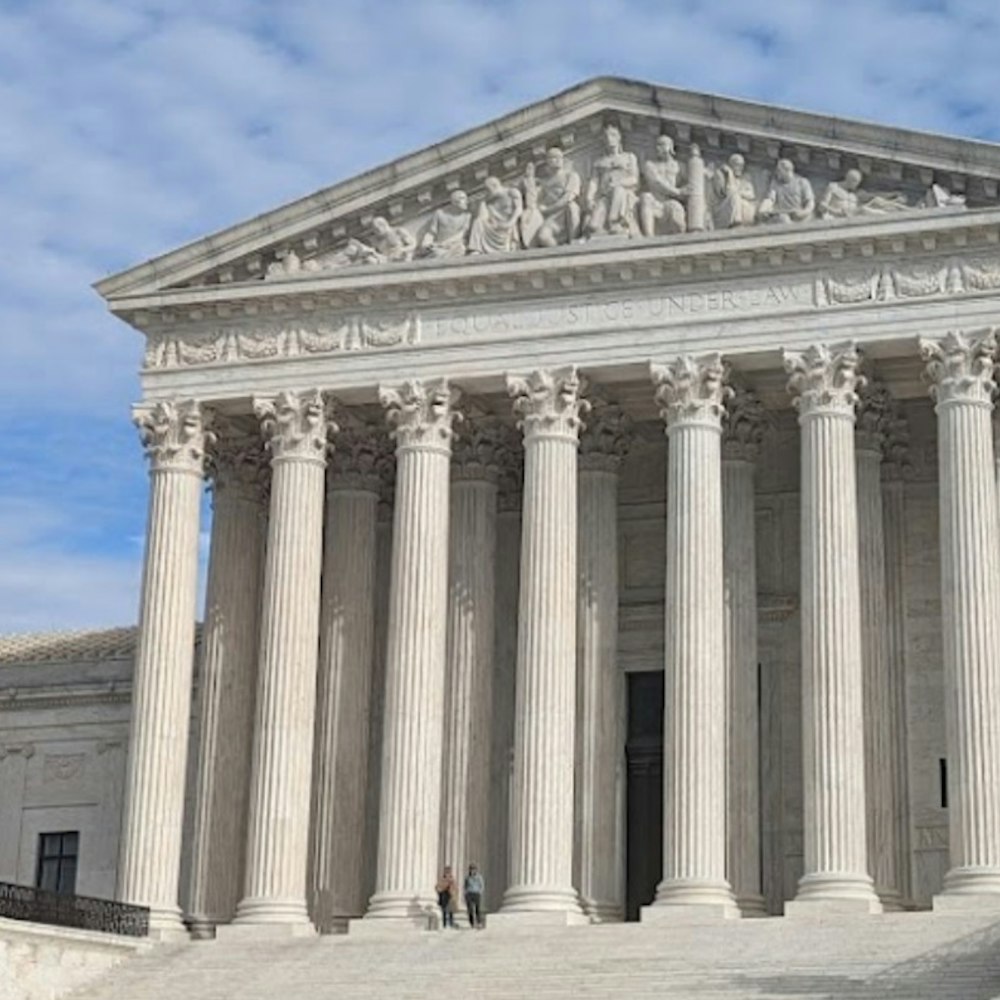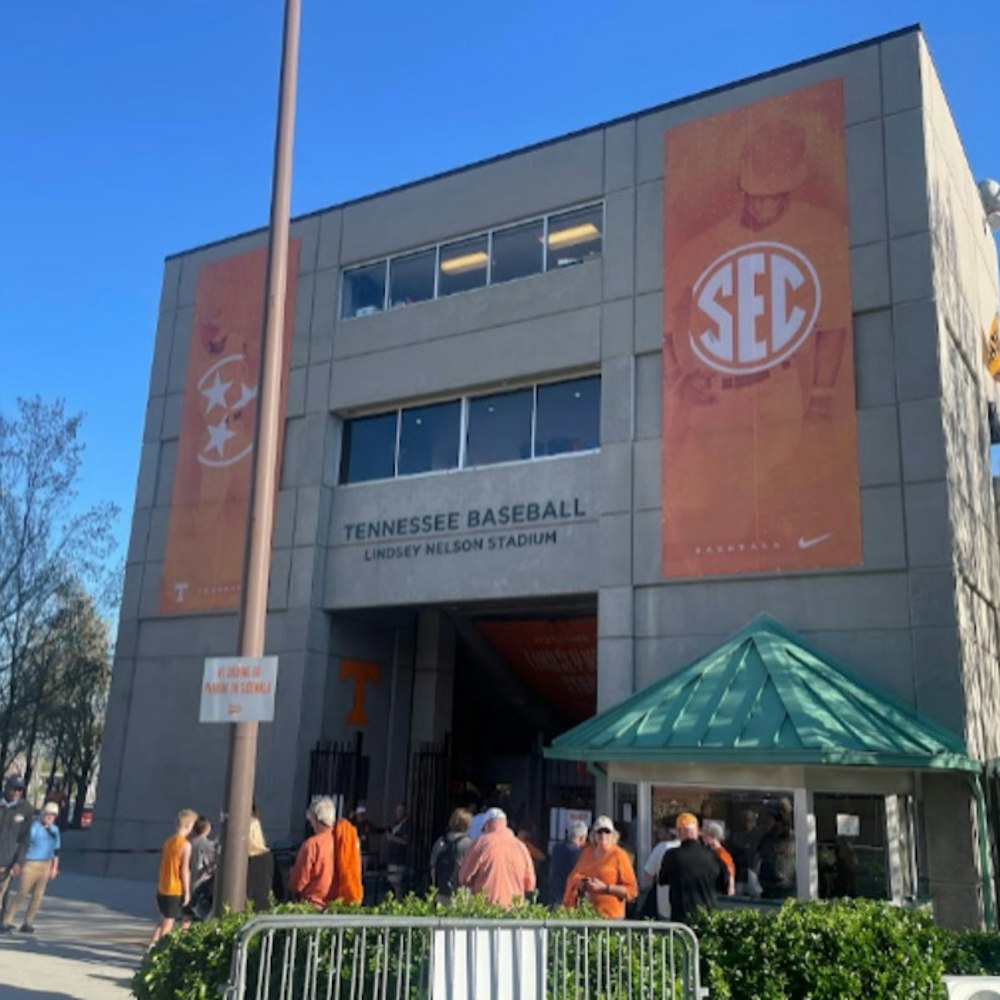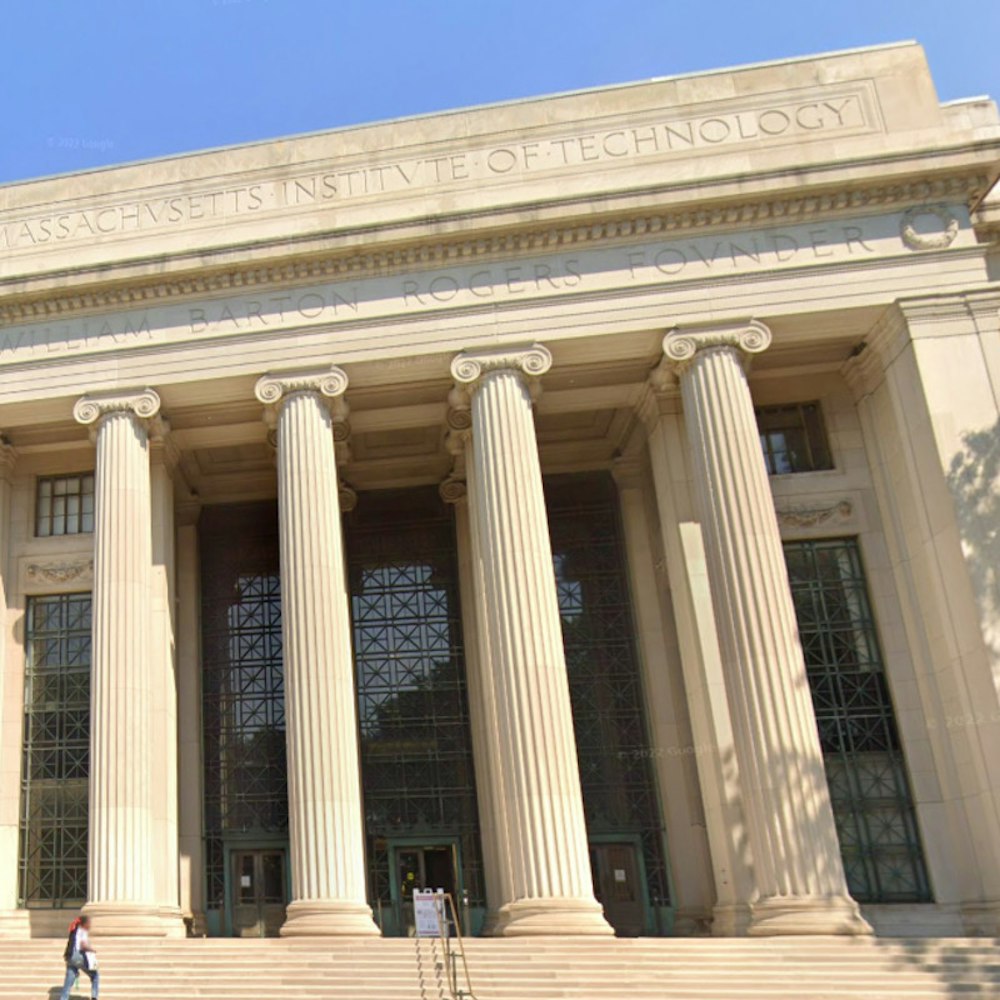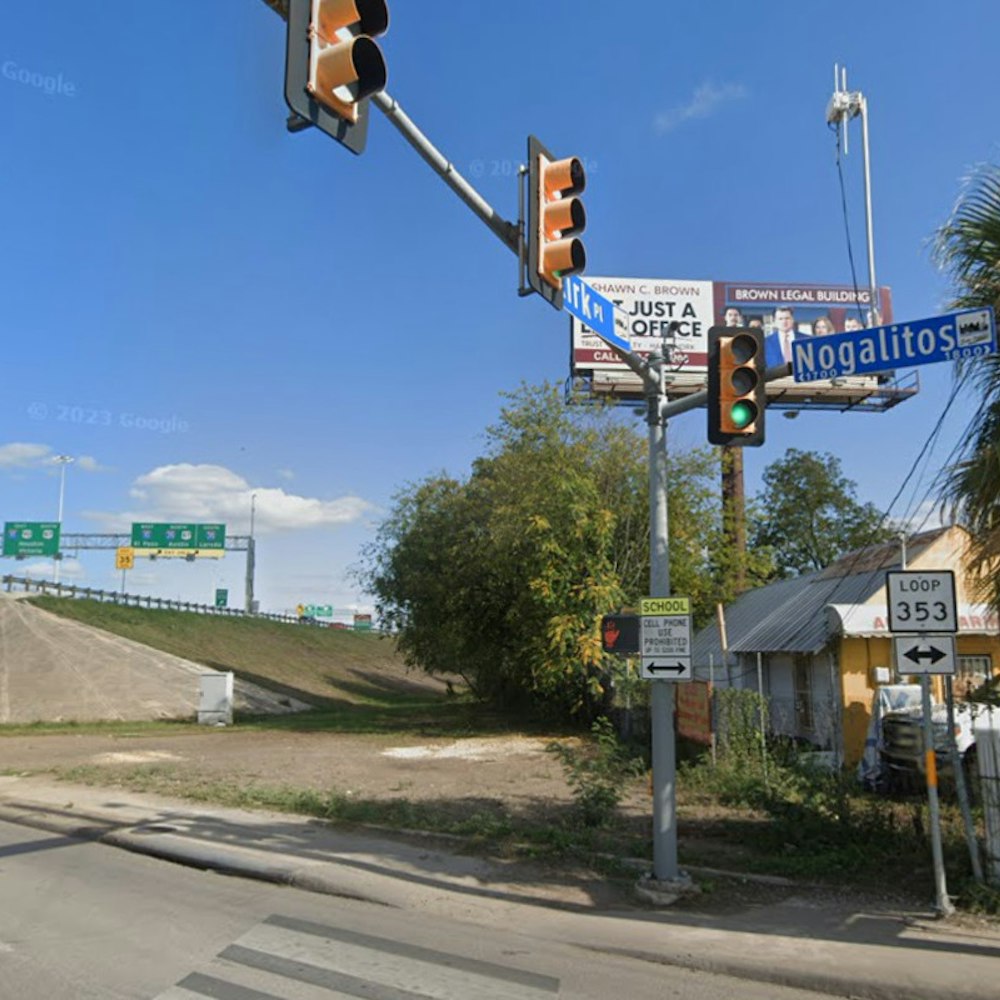
For a young novelist, Andrew Sean Greer has already established a career most writers would envy.
His first novel, The Path of Minor Planets, was published to critical praise in 2001, when Greer was just 30 years old.
Three years later, Greer's second novel, The Confessions of Max Tivoli, debuted. Following the story of a man aging backwards in Victorian-era San Francisco, the book earned instant acclaim from the likes of John Updike and Mitch Albom, was selected for the Today Show Book Club, became a bestseller, and garnered Greer numerous literary prizes including the California Book Award.
About his third novel, 2008's A Story of a Marriage (also set in San Francisco), the Washington Post wrote, "[it] is more than worth the reader's attention. It's thoughtful, complex and exquisitely written," declaring it a Book of the Year.
Now Greer, a Waller Street resident, is putting the finishing touches on his fourth novel.
A few weeks ago, he took some time to sit down with Haighteration over a few beers at Noc Noc to discuss the new book, as well as faulty memories, famous Parisian neighbors, and the thing he thinks the Lower Haight needs most.
Andrew Sean Greer: I will say I appreciate the new [renovated front area of Noc Noc]. It works for me. It's just as weird as before. Haighteration: It is not less weird. Is this your favorite bar in the neighborhood? ASG: Yeah. It's gotta be. I was here on a Friday or Saturday once, and I thought, "Oh, this crowd is not for me." ... I like it when it's the couch-surfing crowd that shows up here. That's always fun, and you never know when that's going to happen. You know, you just show up on a Wednesday with your friends, and there's a hundred Germans and Swedes with nametags who are eager to talk to you. H: How do they show up here? Why this place? ASG: Because the owner's son is really into couchsurfing, and he just decided they should have a party here, for all the couchsurfers in San Francisco. And once a month they do. H: What else do you like around here? ASG: Because of your article, I went into Two Jacks, and she was so lovely. Nothing is as San Francisco as a chalkboard menu. Should I have the fried oyster sandwich? Probably not, but I wanted to. Also, it's the closest business to me. [At this point, we discuss a couple of Lower Haight eateries we could do without -- strictly off the record.] ASG: What would you open up? My answer is always a cheap grilled teriyaki bowl restaurant. None of this shit teriyaki that they serve in Japanese restaurants. Give me some grilled chicken, vegetables, rice, teriyaki sauce, $5.95. Bullet train shit everywhere, anime, nonsense. Like really, really, really tacky. With an awesome DJ. It would make a fortune. H: You work in the Mission somewhere, right? ASG: Yes, 16th and Mission. H: Why there? ASG: When I was looking for a new office like two years ago, I had a price point, and I found three places. And I needed something right away. I found a houseboat on Mission Bay that had a broken hot tub on the top. I found a room in a Victorian in Hayes Valley, next to people who were doing a video project, overlooking a garden. And I found a really shitty, shitty windowless space at 16th and Mission. And I chose that one because it was walking distance, and totally private and isolated. It's got two couches and an upstairs, and it's super crappy. The Victorian would have been the right choice, but I would have heard [the neighbors], and I need silence. And the houseboat wasn't close enough. H: Do you go to the office every day? Are you disciplined about that? ASG: Yeah. Every day. And it works, because there's no internet, it doesn't get cell phone reception, I can't text or anything. It means that there's nothing else i can do but writing, so I get it done. H: You just got back from Paris. What were you doing there? ASG: A San Francisco theater company called Word for Word put on a production of a short story I wrote. (I'm saying this so that I don't say "my play," because I didn't write a play.) Every year they tour a play in France for a month. So this year they got funding to bring the author along with them. So they flew me out ... They kept me very separate though. They all stayed in an apartment together and had meals every night, and I stayed in a very glamorous apartment in the 6th Arrondissement and they were in like the 14th Arrondissement. H: So you were kind of VIP. ASG: Yeah, they VIP-ed me. But you know what, I paid for part of the apartment. They were like, "We can't really afford it, but do you want to use it?" It was really glamorous. It's downstairs from David Sedaris. H: Does he live there? ASG: Yeah, he lives there in Paris. His doorbell was right above mine. H: Did you say hi? ASG: NO! No. No. That would be inappropriate. But I did see him at an Amy Tan reading at the embassy in Paris. I was too shy... I thought it would happen at the embassy, and then he snuck away. Because I thought, "I have such a great intro to this." H: Not at all creepy. ASG: Right! "Hi, just so you know, I'm staying downstairs. So if there's too much noise... there's nothing you can do about it." On Research: H: You are clearly a history guy. I've read a couple of your books, and what strikes me is how detailed the specifics of the time periods are. I'm curious about how you research those details. I'm thinking of Max Tivoli especially. Very, very detailed. ASG: You have no idea how much I cut out. H: Really? ASG: And I should have cut out a lot more. I did so much research because I didn't know what I was doing, and I really felt insecure about it. So I went to Berkeley, and they have a library there, the Bancroft Library, where you get boxes of people's stuff, and I did primary research. Tons and tons of it. I didn't know what I was doing at all. I put so much of it in that book. And I cut, maybe, 150 pages. H: Holy shit. ASG: It was my editor's instinct and input. And I learned this in Story of a Marriage, which is that, you're a better liar if you give just one piece of information than if you give, like, ten. Because, you know, if your boyfriend is like, "Where were you last night? You came in really late," and you're like, "I was out with Josh," that's better than "Josh met me at 10, and then at 10:30 it was really confusing because this guy showed up, and..." It starts to sound weird. Why are you giving me so much information? You sound like a liar. And if you're actually speaking from the time period, you wouldn't think it was weird. You would just mention a few things as throwaways. So I actually should have cut a lot more. And in Story of a Marriage I should have cut a lot more, but I just couldn't bear to lose some things that I found. But in Story of a Marriage, I read the newspaper. Advertisements. That's what I did for this book too, I read the newspaper. H: So you just finished your new book? ASG: I did. Well, "finished" is so... relative. I finished a draft in January. And now I'm writing a second draft. And then I have to try to sell it. H: I'm curious about the schedule of those milestones. How long does it take you to do the second draft? ASG: With this one, I'll be done in June. So I'll go to New York, or I'll spend June getting feedback from people, and figuring out how to plan my attack. H: When is the book set? And where? ASG: It's in New York, not San Francisco. H: [Outrage] Tell me someone at least moved to New York from San Francisco. Some connection... ASG: I know, everybody's kind of mad about that. No, there's no San Francisco in it at all! I know. It's set in 1918, 1941, and 1985, and I had kind of already covered those first two periods [in previous books] in San Francisco, and I was not interested in doing it again. H: Do you know New York well? ASG: Well I lived there for a year. The New York Public Library gave me a grant to do research exactly for this book. Actually I wrote it first in San Francisco, and then I got the grant, and set it in New York. H: You wrote the whole thing in San Francisco, and then... ASG: No, like 100 pages, which I threw away. H: It's that easy just to transfer everything to New York? ASG: I just start over. It was easier somehow. But I look at it, and I don't think there's that much research in it, but I'm sure when it comes out people will talk about how researched it is. I think I'm very bad at it. But maybe I'm good at making it seem like I know a lot more than I do. H: I have a specific question about Woodward's Gardens [an amusement park featured in Max Tivoli]. Was that a real place? ASG: Oh yeah. It's right where Woodward's Garden is. It's that restaurant. It was exactly there, and it crossed Division Street. So it was an entire city block on one side and an entire city block on the other... H: And it was some sort of park... ASG: Yeah it was exactly! I have to say, when you do research about Victorian San Francisco, Woodward's Gardens is the first thing that comes up. Because it's the main memory for people who had their childhood in the 1870s. And so when people started doing interviews with people about San Francisco starting in the 1930s, everyone remembered -- they were 60, right? Or 70? -- they remembered Woodward's Gardens. Because this man, he owned all this property, Woodward, and he decided to make it into this pleasure ground. It's not our idea of a good time, probably, because it was like, stuffed flamingos among bushes, you know. It was weird. Dromedary rides. Hot air balloons. H: All of [those details in the book] were real? ASG: All of that was real. And they killed a bear -- that was taken directly out of the newspaper. I got something wrong though. Because I was reading the literal newspaper, and there was a crease in it. It said "They shot him in the rear." And I got a note from a guy saying no one would ever shoot a bear in the rear, because it would spoil the meat. And I was like, "What do you know? It's written in the paper." And then I looked at it again, and I was like, "Oh. 'EAR.' Of course, that would kill a bear. Not the rear." Oh well. H: Do you get a lot of letters like that? ASG: When a book first comes out, I get a lot of stuff. The Max Tivoli book I got a lot. It's really weird. A lot of people want to stake some kind of claim. I think they want to be writers themselves, and so they will often come up to you and correct you on a minor point as a way of showing they're equal to you. And I now accept that. I understand it. H: Can you give an example? ASG: Like someone might come up to me and say, "I read your book, I thought it was great, but you know, you made a mistake. I heard you reading, and you said her name was Alice Levy [pronounced like 'levee'], and in the West we pronounce it 'lee-vee'." And I say, "Thank you very much." And now we're equals. Instead of being an audience member or a reader, she's helping me out. It's strange. But I think it's very human. It's also how you're supposed to pick up people in a bar. You're supposed to insult them a little bit. Just to show that you're in control. H: So they're flirting with you a little bit. ASG: They are flirting with me a little bit. It's almost like they want to have a conversation as equals. Not a fawning fan conversation. So they want to be clear that they know what they're talking about... You would never do that to someone you thought was an equal. You would only do it to, like, a famous person, to try to connect with them, to get to them. To catch them off their guard. H: Is celebrity something you deal with a lot? ASG: No. Are you kidding me? No. No, no, no. ... I always feel like I'm a hanger-on. [My husband] David feels this way too. It's actually amazing the cool people we get to meet, but I'm not the celebrity. I have lots of friends who I think of as famous, but also no one would recognize them on the street, so they're not in that way. Which is fine. I'd like their money, but I don't need that weird thing. People then need something from them, whatever that weird thing is that people need from celebrities. What you need is like... their wisdom. A celebrity writer - you think they know something. When really, they know less than their book says. They edit their book to make it seem -- it's better than they are. That's the thing about art: it's better than [the artists] are. H: Are you maybe selling yourself short? ASG: No, I'm selling my friends short! [Laughs] They're lovely people but they're not all particularly wise. But their books are incredibly wise. And people wonder, "How do they know so much about life?" And the answer is, because they've thought about it for ten minutes, about that sentence, so it sounds good. H: Do you think if everyone devoted their time to thinking about these things, they could come up with that same material? ASG: [Laughs] No, I don't. On Memory: ASG: For Story of a Marriage, I interviewed a woman who was in her 80s and lived in the Sunset. And I talked to her, and she was really lovely. Armenian. But also, interviewing her, I understood that her memory was no worse than ours, but... wrong. H: How so? ASG: Specifically, she read my notebook for errors. I was so grateful. And she said that a part of the book that talks about there being icemen and milkmen and an egg lady who had a cart and vegetable men, and guys who would sharpen your knives, and she said, "Oh no no, that was the '30s, that wasn't the '50s." She was wrong about that. H: How do you know she was wrong? ASG: Because it was in the newspaper. And it was very interesting for me, because it meant that what she meant was that it was typical of the '30s, and it was gone by the late-'50s. It was sort of in its last gasp in the '50s. So it's not an accurate portrayal of that time period. My point in writing it was that the era was switching into a new era, and that it was this old way of doing things. So I realized that I couldn't trust what she said. [Laughs] Because her memory compartmentalized everything. I mean, you tell somebody you're writing about the 1950s, and they think, "Oh, poodle skirts and Elvis." And actually, no, that's 1962. Anyway, I dealt with that a lot. So I stopped interviewing people. I go to the primary sources. Because if I ask people, like, "When did milk delivery stop in San Francisco," they say the 1940s. I say, no, 1981. Why does nobody remember through the 1970s getting milk delivered? Because it tapered off. I mean, now there's milk delivery again, because it's super yuppie, but... H: So you're very diligent about verifying details like that. ASG: It was very nice for me the other day when this play thing was going on in San Francisco, and this woman came up to me and said, "I lived in San Francisco in 1953, in the Sunset, and I have to tell you, that everything was exactly as you described it." H: Do you feel like with this new book you'll face that same problem? ASG: I don't know, that's not my biggest problem with this book. I'll worry about that later. [Laughs] It's also not my city, and New Yorkers are sort of weird. They don't care about history the way we do. They have no memory. You know, a place will have been around for 70 years, and they'll have a big sign that says, "We're closing! Help donate!" And nobody will donate, because they're like, "Alright, something new!" You know, CBGB's going down in the East Village, I was like, David Bowie can't step in and buy CBGB? Nope. No one. Patti Smith? Nope? Nobody. And, there it goes. It's a John Varvatos store now. H: Why do you think that's the case in New York moreso than here? ASG: Because there's enough. If they lose something, there's something else. Whereas here, if we lost-- say, if The Warfield or The Fillmore were going to be turned into a mall, people would go nuts. Because we don't have as much. H: Let's talk about the new book. Can you tell me about the plot? Does it have a title? ASG: The title is called "Many Worlds," and it's about a woman who undergoes electroshock therapy and then finds herself traveling between three different versions of her life, one in which she's living in 1918, one in which she's living in 1941, and one in 1985. So she gets to see how her life would have been different if she had been born in different times. H: Where did that idea come from? ASG: I was reading a description of a Michael Cunningham novel, and I got it wrong -- I thought that was what the novel was about, and then it wasn't. So I remembered it. And I was intrigued by the idea of how the time in which we're born would change who we are. That we're not necessarily a solid person -- or maybe some people are. Some people would be the same. But I think most people would be whatever the time allowed them to be. Especially for women. Although oddly, maybe [1918 would have been] better. It was a pretty liberated moment for women in the West Village in 1918. H: All three eras are set in New York? ASG: Yep, same exact place. West Village. H: It seems to be a theme for you, how people relate to the historical time that they're in. ASG: Yeah, yeah, I guess I keep thinking about that. Especially for women, I often think about my grandmothers, or even my mother. You just think, "God, if only they'd been born 30 years later, it would have been so much easier for them." H: Do you feel that way about yourself at all? Do you think you were born in an easy time? ASG: Well I do think -- when I tell people about this book, I used to tell people it's a time-travel novel. Which it's not. And they will say, like, "What time would you like to be born? What would be your favorite time to live in?" And I'd be like, "I don't know, what time would you like to be a gay man? Medieval England? Ancient Egypt?" I mean, I don't know. Maybe in the future? I know I'm not born at the best time to be gay, still, but it's so much better. So I'm like, "I'm sorry, there's no good time for me at all." You could say for gay men, you know, around 1918 was not terrible. 1918 in Paris, you'd be fine. You could have a life. And in Berlin. But then, come 1930, things are not so great in Berlin. So... H: Was it a conscious choice to have a female protagonist in your new book? ASG: I actually tried writing it as a male, this book. The plot kind of involves tangled romantic situations, and it just seemed shitty, because he had a mistress, and a wife, and he just seemed like an asshole. But oddly, when I reversed the genders, and it was a woman who had a lover and a husband, it seemed totally fine. [Laughs] I don't know why. H: Do you find it hard to write in the voice of a woman? ASG: The job as a fiction writer is to try to get your mind into someone who is not you. That's the job as I see it. But I also think the job is not to write as all women, or something terrible like that, but to write as the particular character. Which would be the same thing if it was a guy. To write as specific as that character as you can, and be honest about it, and then you'll be fine. H: Are you doing pretty drastic changes to it in the second draft? ASG: Yeah. It's all structural though. It's always structural, that's how it goes. The problem isn't what happens, it's all pacing. Pacing, pacing, pacing, pacing, pacing. Moving things around. "Oh, maybe this backstory belongs to someone else." And the hardest part for me is always the beginning. I work so hard on those beginnings because when I start writing it, I don't know what I'm doing. So I have to go back and make it seem confident, when it wasn't when I started it. To fake confidence is a very hard thing to do. That is what I have to do. We'll see how it goes. H: Do you feel good about how it's turning out? ASG: Yeah. I have no idea if anyone wants to read this thing, but I think I am making what's in my head. Which is the best I can do. H: So you're going to hopefully finish the second draft in June, and then start the process of selling it... ASG: Sell it, and then I'll get an editor, and then I'll edit it. I guess it would come out like a year from now. I mean, if I sell it at all. I have no idea. H: Are you being humble, or do you really worry about selling it? ASG: I'm sure I'll sell it. It's just that the industry is very bad right now. And so, it's doing what most industries do, which is that, it will bet everything on one book, and give nothing to the other books in its catalogue... And so you have to find a publisher who swears that you're the one in that catalogue. And it's awful. Because even if you get that promise, you know that there's four other books they probably promised it to and that aren't going to get it. It's terrible. It means that the best case scenario is, I would suck up all the marketing money from some publishing house, and no one else would get it. And it doesn't promise you success. But I have to get that promise. Because otherwise it's not worth it. More than getting money for myself is the promise that they're behind it. H: Can you do anything to convince them of that beyond just the material itself being strong? Do you have to build any buzz for it yourself? ASG: Well, I went off Twitter for a while. And then I went back on, because I felt, I don't know, there seem to be people listening, and I want to amuse them while I'm still writing the book, and then maybe they'll be interested when it comes out. And there are some writers who have done that, who have a Twitter persona that's really attractive. They have fans who have never read their books. That may not be me. I think the main thing is that you want to sell [publishers] on the fact that they're buying into your career. And that they don't just want this book but they want you as a writer. I seem pretty old to a musician or a visual artist, but I'm really young as a novelist. So, you know, they can count on 30 years of work. That's what you want to persuade them, that you're going to keep writing at a certain level. H: I would think that, given that you've already produced well-received books, it's strange to me that it would still be hard at this stage, and that you'd still have to go through that process of convincing people to take the chance. ASG: For me, it's a big moment. It's a big book for me. I have to make my mark in some way. It's time for me to make my mark. H: You feel like your previous books haven't done that? ASG: They did, but I need to keep doing it at that level. I can't slip below that. Fifty is your peak, when you're a novelist. So I can't become a midlist writer at the moment. I have to keep building up to fifty, in my head. [Laughs] And then, you know, I can slip down. But you know, I'm supposed to write a masterpiece at fifty. So they should keep getting better and better. H: That is a real motivating factor for you? ASG: Yeah. I don't want it to be "good enough." Also, because no one is reading books, you can't just write a thing. For me, I can't just write a thing. It has to be worth people's time. Because almost no one I know reads much. But when they get a good book in their hands, they're really grateful. So, I would like to write that book.
Thanks to Andrew Sean Greer for spending some time with us. You can find him on Twitter at @agreer, and find his novels at The Booksmith in the Upper Haight, or at fine bookstores throughout the city and interwebs. We'll keep tabs on Greer's progress, and will be certain to let you know when "Many Worlds" hits the shelves!
Andrew Sean Greer: I will say I appreciate the new [renovated front area of Noc Noc]. It works for me. It's just as weird as before. Haighteration: It is not less weird. Is this your favorite bar in the neighborhood? ASG: Yeah. It's gotta be. I was here on a Friday or Saturday once, and I thought, "Oh, this crowd is not for me." ... I like it when it's the couch-surfing crowd that shows up here. That's always fun, and you never know when that's going to happen. You know, you just show up on a Wednesday with your friends, and there's a hundred Germans and Swedes with nametags who are eager to talk to you. H: How do they show up here? Why this place? ASG: Because the owner's son is really into couchsurfing, and he just decided they should have a party here, for all the couchsurfers in San Francisco. And once a month they do. H: What else do you like around here? ASG: Because of your article, I went into Two Jacks, and she was so lovely. Nothing is as San Francisco as a chalkboard menu. Should I have the fried oyster sandwich? Probably not, but I wanted to. Also, it's the closest business to me. [At this point, we discuss a couple of Lower Haight eateries we could do without -- strictly off the record.] ASG: What would you open up? My answer is always a cheap grilled teriyaki bowl restaurant. None of this shit teriyaki that they serve in Japanese restaurants. Give me some grilled chicken, vegetables, rice, teriyaki sauce, $5.95. Bullet train shit everywhere, anime, nonsense. Like really, really, really tacky. With an awesome DJ. It would make a fortune. H: You work in the Mission somewhere, right? ASG: Yes, 16th and Mission. H: Why there? ASG: When I was looking for a new office like two years ago, I had a price point, and I found three places. And I needed something right away. I found a houseboat on Mission Bay that had a broken hot tub on the top. I found a room in a Victorian in Hayes Valley, next to people who were doing a video project, overlooking a garden. And I found a really shitty, shitty windowless space at 16th and Mission. And I chose that one because it was walking distance, and totally private and isolated. It's got two couches and an upstairs, and it's super crappy. The Victorian would have been the right choice, but I would have heard [the neighbors], and I need silence. And the houseboat wasn't close enough. H: Do you go to the office every day? Are you disciplined about that? ASG: Yeah. Every day. And it works, because there's no internet, it doesn't get cell phone reception, I can't text or anything. It means that there's nothing else i can do but writing, so I get it done. H: You just got back from Paris. What were you doing there? ASG: A San Francisco theater company called Word for Word put on a production of a short story I wrote. (I'm saying this so that I don't say "my play," because I didn't write a play.) Every year they tour a play in France for a month. So this year they got funding to bring the author along with them. So they flew me out ... They kept me very separate though. They all stayed in an apartment together and had meals every night, and I stayed in a very glamorous apartment in the 6th Arrondissement and they were in like the 14th Arrondissement. H: So you were kind of VIP. ASG: Yeah, they VIP-ed me. But you know what, I paid for part of the apartment. They were like, "We can't really afford it, but do you want to use it?" It was really glamorous. It's downstairs from David Sedaris. H: Does he live there? ASG: Yeah, he lives there in Paris. His doorbell was right above mine. H: Did you say hi? ASG: NO! No. No. That would be inappropriate. But I did see him at an Amy Tan reading at the embassy in Paris. I was too shy... I thought it would happen at the embassy, and then he snuck away. Because I thought, "I have such a great intro to this." H: Not at all creepy. ASG: Right! "Hi, just so you know, I'm staying downstairs. So if there's too much noise... there's nothing you can do about it." On Research: H: You are clearly a history guy. I've read a couple of your books, and what strikes me is how detailed the specifics of the time periods are. I'm curious about how you research those details. I'm thinking of Max Tivoli especially. Very, very detailed. ASG: You have no idea how much I cut out. H: Really? ASG: And I should have cut out a lot more. I did so much research because I didn't know what I was doing, and I really felt insecure about it. So I went to Berkeley, and they have a library there, the Bancroft Library, where you get boxes of people's stuff, and I did primary research. Tons and tons of it. I didn't know what I was doing at all. I put so much of it in that book. And I cut, maybe, 150 pages. H: Holy shit. ASG: It was my editor's instinct and input. And I learned this in Story of a Marriage, which is that, you're a better liar if you give just one piece of information than if you give, like, ten. Because, you know, if your boyfriend is like, "Where were you last night? You came in really late," and you're like, "I was out with Josh," that's better than "Josh met me at 10, and then at 10:30 it was really confusing because this guy showed up, and..." It starts to sound weird. Why are you giving me so much information? You sound like a liar. And if you're actually speaking from the time period, you wouldn't think it was weird. You would just mention a few things as throwaways. So I actually should have cut a lot more. And in Story of a Marriage I should have cut a lot more, but I just couldn't bear to lose some things that I found. But in Story of a Marriage, I read the newspaper. Advertisements. That's what I did for this book too, I read the newspaper. H: So you just finished your new book? ASG: I did. Well, "finished" is so... relative. I finished a draft in January. And now I'm writing a second draft. And then I have to try to sell it. H: I'm curious about the schedule of those milestones. How long does it take you to do the second draft? ASG: With this one, I'll be done in June. So I'll go to New York, or I'll spend June getting feedback from people, and figuring out how to plan my attack. H: When is the book set? And where? ASG: It's in New York, not San Francisco. H: [Outrage] Tell me someone at least moved to New York from San Francisco. Some connection... ASG: I know, everybody's kind of mad about that. No, there's no San Francisco in it at all! I know. It's set in 1918, 1941, and 1985, and I had kind of already covered those first two periods [in previous books] in San Francisco, and I was not interested in doing it again. H: Do you know New York well? ASG: Well I lived there for a year. The New York Public Library gave me a grant to do research exactly for this book. Actually I wrote it first in San Francisco, and then I got the grant, and set it in New York. H: You wrote the whole thing in San Francisco, and then... ASG: No, like 100 pages, which I threw away. H: It's that easy just to transfer everything to New York? ASG: I just start over. It was easier somehow. But I look at it, and I don't think there's that much research in it, but I'm sure when it comes out people will talk about how researched it is. I think I'm very bad at it. But maybe I'm good at making it seem like I know a lot more than I do. H: I have a specific question about Woodward's Gardens [an amusement park featured in Max Tivoli]. Was that a real place? ASG: Oh yeah. It's right where Woodward's Garden is. It's that restaurant. It was exactly there, and it crossed Division Street. So it was an entire city block on one side and an entire city block on the other... H: And it was some sort of park... ASG: Yeah it was exactly! I have to say, when you do research about Victorian San Francisco, Woodward's Gardens is the first thing that comes up. Because it's the main memory for people who had their childhood in the 1870s. And so when people started doing interviews with people about San Francisco starting in the 1930s, everyone remembered -- they were 60, right? Or 70? -- they remembered Woodward's Gardens. Because this man, he owned all this property, Woodward, and he decided to make it into this pleasure ground. It's not our idea of a good time, probably, because it was like, stuffed flamingos among bushes, you know. It was weird. Dromedary rides. Hot air balloons. H: All of [those details in the book] were real? ASG: All of that was real. And they killed a bear -- that was taken directly out of the newspaper. I got something wrong though. Because I was reading the literal newspaper, and there was a crease in it. It said "They shot him in the rear." And I got a note from a guy saying no one would ever shoot a bear in the rear, because it would spoil the meat. And I was like, "What do you know? It's written in the paper." And then I looked at it again, and I was like, "Oh. 'EAR.' Of course, that would kill a bear. Not the rear." Oh well. H: Do you get a lot of letters like that? ASG: When a book first comes out, I get a lot of stuff. The Max Tivoli book I got a lot. It's really weird. A lot of people want to stake some kind of claim. I think they want to be writers themselves, and so they will often come up to you and correct you on a minor point as a way of showing they're equal to you. And I now accept that. I understand it. H: Can you give an example? ASG: Like someone might come up to me and say, "I read your book, I thought it was great, but you know, you made a mistake. I heard you reading, and you said her name was Alice Levy [pronounced like 'levee'], and in the West we pronounce it 'lee-vee'." And I say, "Thank you very much." And now we're equals. Instead of being an audience member or a reader, she's helping me out. It's strange. But I think it's very human. It's also how you're supposed to pick up people in a bar. You're supposed to insult them a little bit. Just to show that you're in control. H: So they're flirting with you a little bit. ASG: They are flirting with me a little bit. It's almost like they want to have a conversation as equals. Not a fawning fan conversation. So they want to be clear that they know what they're talking about... You would never do that to someone you thought was an equal. You would only do it to, like, a famous person, to try to connect with them, to get to them. To catch them off their guard. H: Is celebrity something you deal with a lot? ASG: No. Are you kidding me? No. No, no, no. ... I always feel like I'm a hanger-on. [My husband] David feels this way too. It's actually amazing the cool people we get to meet, but I'm not the celebrity. I have lots of friends who I think of as famous, but also no one would recognize them on the street, so they're not in that way. Which is fine. I'd like their money, but I don't need that weird thing. People then need something from them, whatever that weird thing is that people need from celebrities. What you need is like... their wisdom. A celebrity writer - you think they know something. When really, they know less than their book says. They edit their book to make it seem -- it's better than they are. That's the thing about art: it's better than [the artists] are. H: Are you maybe selling yourself short? ASG: No, I'm selling my friends short! [Laughs] They're lovely people but they're not all particularly wise. But their books are incredibly wise. And people wonder, "How do they know so much about life?" And the answer is, because they've thought about it for ten minutes, about that sentence, so it sounds good. H: Do you think if everyone devoted their time to thinking about these things, they could come up with that same material? ASG: [Laughs] No, I don't. On Memory: ASG: For Story of a Marriage, I interviewed a woman who was in her 80s and lived in the Sunset. And I talked to her, and she was really lovely. Armenian. But also, interviewing her, I understood that her memory was no worse than ours, but... wrong. H: How so? ASG: Specifically, she read my notebook for errors. I was so grateful. And she said that a part of the book that talks about there being icemen and milkmen and an egg lady who had a cart and vegetable men, and guys who would sharpen your knives, and she said, "Oh no no, that was the '30s, that wasn't the '50s." She was wrong about that. H: How do you know she was wrong? ASG: Because it was in the newspaper. And it was very interesting for me, because it meant that what she meant was that it was typical of the '30s, and it was gone by the late-'50s. It was sort of in its last gasp in the '50s. So it's not an accurate portrayal of that time period. My point in writing it was that the era was switching into a new era, and that it was this old way of doing things. So I realized that I couldn't trust what she said. [Laughs] Because her memory compartmentalized everything. I mean, you tell somebody you're writing about the 1950s, and they think, "Oh, poodle skirts and Elvis." And actually, no, that's 1962. Anyway, I dealt with that a lot. So I stopped interviewing people. I go to the primary sources. Because if I ask people, like, "When did milk delivery stop in San Francisco," they say the 1940s. I say, no, 1981. Why does nobody remember through the 1970s getting milk delivered? Because it tapered off. I mean, now there's milk delivery again, because it's super yuppie, but... H: So you're very diligent about verifying details like that. ASG: It was very nice for me the other day when this play thing was going on in San Francisco, and this woman came up to me and said, "I lived in San Francisco in 1953, in the Sunset, and I have to tell you, that everything was exactly as you described it." H: Do you feel like with this new book you'll face that same problem? ASG: I don't know, that's not my biggest problem with this book. I'll worry about that later. [Laughs] It's also not my city, and New Yorkers are sort of weird. They don't care about history the way we do. They have no memory. You know, a place will have been around for 70 years, and they'll have a big sign that says, "We're closing! Help donate!" And nobody will donate, because they're like, "Alright, something new!" You know, CBGB's going down in the East Village, I was like, David Bowie can't step in and buy CBGB? Nope. No one. Patti Smith? Nope? Nobody. And, there it goes. It's a John Varvatos store now. H: Why do you think that's the case in New York moreso than here? ASG: Because there's enough. If they lose something, there's something else. Whereas here, if we lost-- say, if The Warfield or The Fillmore were going to be turned into a mall, people would go nuts. Because we don't have as much. H: Let's talk about the new book. Can you tell me about the plot? Does it have a title? ASG: The title is called "Many Worlds," and it's about a woman who undergoes electroshock therapy and then finds herself traveling between three different versions of her life, one in which she's living in 1918, one in which she's living in 1941, and one in 1985. So she gets to see how her life would have been different if she had been born in different times. H: Where did that idea come from? ASG: I was reading a description of a Michael Cunningham novel, and I got it wrong -- I thought that was what the novel was about, and then it wasn't. So I remembered it. And I was intrigued by the idea of how the time in which we're born would change who we are. That we're not necessarily a solid person -- or maybe some people are. Some people would be the same. But I think most people would be whatever the time allowed them to be. Especially for women. Although oddly, maybe [1918 would have been] better. It was a pretty liberated moment for women in the West Village in 1918. H: All three eras are set in New York? ASG: Yep, same exact place. West Village. H: It seems to be a theme for you, how people relate to the historical time that they're in. ASG: Yeah, yeah, I guess I keep thinking about that. Especially for women, I often think about my grandmothers, or even my mother. You just think, "God, if only they'd been born 30 years later, it would have been so much easier for them." H: Do you feel that way about yourself at all? Do you think you were born in an easy time? ASG: Well I do think -- when I tell people about this book, I used to tell people it's a time-travel novel. Which it's not. And they will say, like, "What time would you like to be born? What would be your favorite time to live in?" And I'd be like, "I don't know, what time would you like to be a gay man? Medieval England? Ancient Egypt?" I mean, I don't know. Maybe in the future? I know I'm not born at the best time to be gay, still, but it's so much better. So I'm like, "I'm sorry, there's no good time for me at all." You could say for gay men, you know, around 1918 was not terrible. 1918 in Paris, you'd be fine. You could have a life. And in Berlin. But then, come 1930, things are not so great in Berlin. So... H: Was it a conscious choice to have a female protagonist in your new book? ASG: I actually tried writing it as a male, this book. The plot kind of involves tangled romantic situations, and it just seemed shitty, because he had a mistress, and a wife, and he just seemed like an asshole. But oddly, when I reversed the genders, and it was a woman who had a lover and a husband, it seemed totally fine. [Laughs] I don't know why. H: Do you find it hard to write in the voice of a woman? ASG: The job as a fiction writer is to try to get your mind into someone who is not you. That's the job as I see it. But I also think the job is not to write as all women, or something terrible like that, but to write as the particular character. Which would be the same thing if it was a guy. To write as specific as that character as you can, and be honest about it, and then you'll be fine. H: Are you doing pretty drastic changes to it in the second draft? ASG: Yeah. It's all structural though. It's always structural, that's how it goes. The problem isn't what happens, it's all pacing. Pacing, pacing, pacing, pacing, pacing. Moving things around. "Oh, maybe this backstory belongs to someone else." And the hardest part for me is always the beginning. I work so hard on those beginnings because when I start writing it, I don't know what I'm doing. So I have to go back and make it seem confident, when it wasn't when I started it. To fake confidence is a very hard thing to do. That is what I have to do. We'll see how it goes. H: Do you feel good about how it's turning out? ASG: Yeah. I have no idea if anyone wants to read this thing, but I think I am making what's in my head. Which is the best I can do. H: So you're going to hopefully finish the second draft in June, and then start the process of selling it... ASG: Sell it, and then I'll get an editor, and then I'll edit it. I guess it would come out like a year from now. I mean, if I sell it at all. I have no idea. H: Are you being humble, or do you really worry about selling it? ASG: I'm sure I'll sell it. It's just that the industry is very bad right now. And so, it's doing what most industries do, which is that, it will bet everything on one book, and give nothing to the other books in its catalogue... And so you have to find a publisher who swears that you're the one in that catalogue. And it's awful. Because even if you get that promise, you know that there's four other books they probably promised it to and that aren't going to get it. It's terrible. It means that the best case scenario is, I would suck up all the marketing money from some publishing house, and no one else would get it. And it doesn't promise you success. But I have to get that promise. Because otherwise it's not worth it. More than getting money for myself is the promise that they're behind it. H: Can you do anything to convince them of that beyond just the material itself being strong? Do you have to build any buzz for it yourself? ASG: Well, I went off Twitter for a while. And then I went back on, because I felt, I don't know, there seem to be people listening, and I want to amuse them while I'm still writing the book, and then maybe they'll be interested when it comes out. And there are some writers who have done that, who have a Twitter persona that's really attractive. They have fans who have never read their books. That may not be me. I think the main thing is that you want to sell [publishers] on the fact that they're buying into your career. And that they don't just want this book but they want you as a writer. I seem pretty old to a musician or a visual artist, but I'm really young as a novelist. So, you know, they can count on 30 years of work. That's what you want to persuade them, that you're going to keep writing at a certain level. H: I would think that, given that you've already produced well-received books, it's strange to me that it would still be hard at this stage, and that you'd still have to go through that process of convincing people to take the chance. ASG: For me, it's a big moment. It's a big book for me. I have to make my mark in some way. It's time for me to make my mark. H: You feel like your previous books haven't done that? ASG: They did, but I need to keep doing it at that level. I can't slip below that. Fifty is your peak, when you're a novelist. So I can't become a midlist writer at the moment. I have to keep building up to fifty, in my head. [Laughs] And then, you know, I can slip down. But you know, I'm supposed to write a masterpiece at fifty. So they should keep getting better and better. H: That is a real motivating factor for you? ASG: Yeah. I don't want it to be "good enough." Also, because no one is reading books, you can't just write a thing. For me, I can't just write a thing. It has to be worth people's time. Because almost no one I know reads much. But when they get a good book in their hands, they're really grateful. So, I would like to write that book.
Thanks to Andrew Sean Greer for spending some time with us. You can find him on Twitter at @agreer, and find his novels at The Booksmith in the Upper Haight, or at fine bookstores throughout the city and interwebs. We'll keep tabs on Greer's progress, and will be certain to let you know when "Many Worlds" hits the shelves!








